
Vietnam ready to deepen comprehensive cooperation with the US
19:05 | 23/03/2025 08:30 | 15/02/2026News and Events
Linkages must meet standards of major markets
Vietnamese agricultural products are increasingly asserting their position globally. According to the Ministry of Agriculture and Environment, the export value of agricultural, forestry, and fishery products in October 2025 was estimated at 5.96 billion US, up 6.3 percent from October 2024. This brought total export value for the first ten months to 58.13 billion US, an increase of 12.9 percent year-on-year. A significant portion of this value comes from regions inhabited by ethnic-minority communities and mountainous areas.
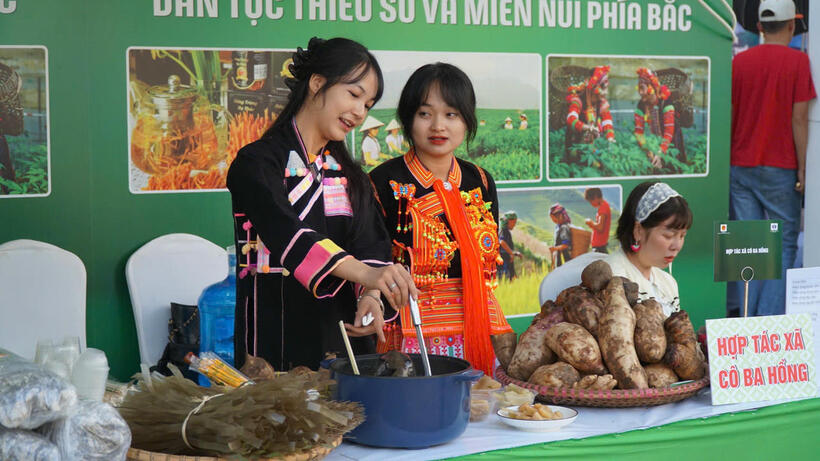
Many trade promotion events have been organized.
However, high export figures do not mean Vietnamese agricultural products enjoy favorable market conditions. As markets tighten regulations on deforestation, traceability, and quality transparency, ethnic-minority production must meet required standards to go further.
Dr. Le Quoc Phuong emphasized that standards are no longer optional but have become a “passport” for products. Enterprises and cooperatives must help farmers keep records, classify products, and maintain uniform production. Only then can products enter supermarkets, e-commerce platforms, or export markets. Importantly, standards must be applied consistently, avoiding the tendency to relax compliance whenever yields improve.
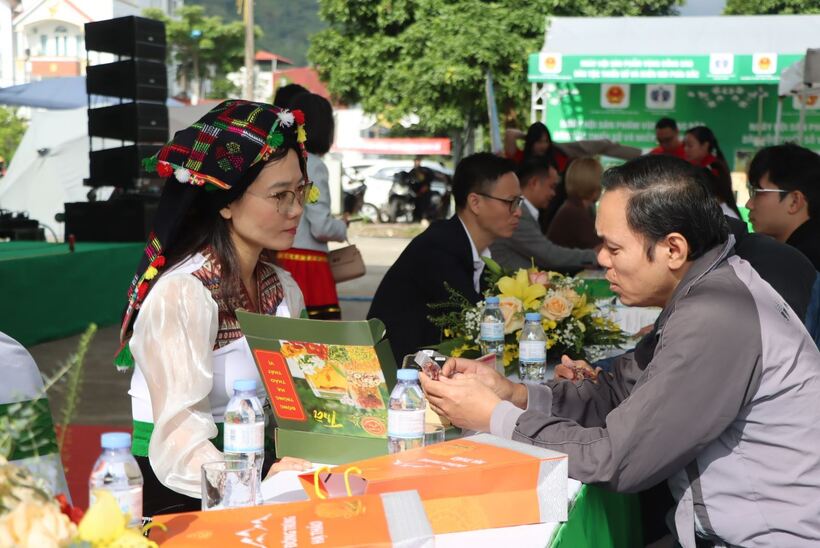
Ethnic-minority agricultural products are being effectively promoted to wider.
Mr. Le Thanh Hoa, Deputy Director of the Department of Quality, Processing, and Market Development under the Ministry of Agriculture and Environment, noted that ethnic-minority and mountainous products face shortcomings in quality, standards, and supply. These products are generally seasonal, meaning output remains limited.
Moreover, to boost both domestic sales and exports, individual cooperatives or localities cannot act alone; value-chain linkages are essential. The Government issued Decree 98/2018/ND-CP encouraging cooperation and linkages in agricultural production and consumption. However, in practice, linkages between production and consumption have still faced disruptions in recent years.
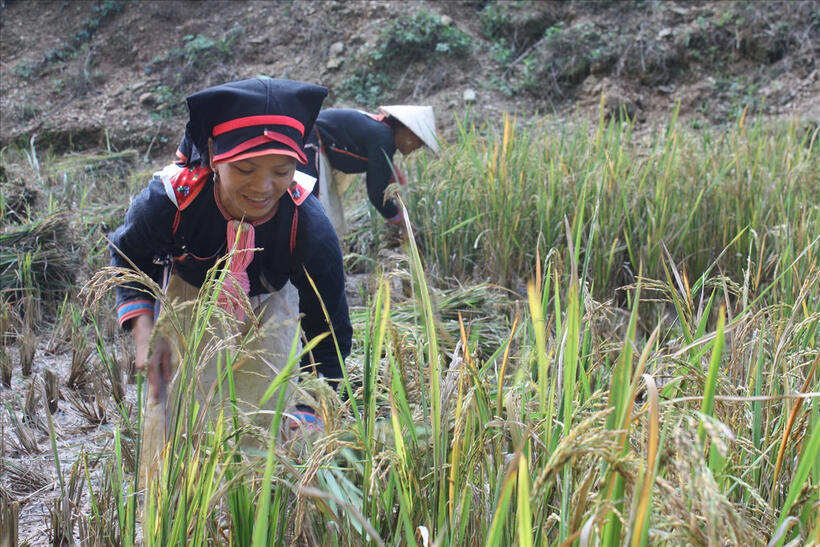
Ethnic-minority farmers participate in successful value-chain linkage models.
In many models, the biggest challenge lies not in capital or technical capacity but in trust between farmers and enterprises. In previous years, traders purchased goods based on short-term market swings, leaving farmers with instability and enterprises unable to control quality. To ensure sustainable linkages, enterprises must demonstrate long-term commitment.
Value chains such as those of Simexco Dak Lak show that when standardization is well implemented, enterprises can sell products at higher prices, allowing them to share benefits with farmers and motivate them to maintain quality.
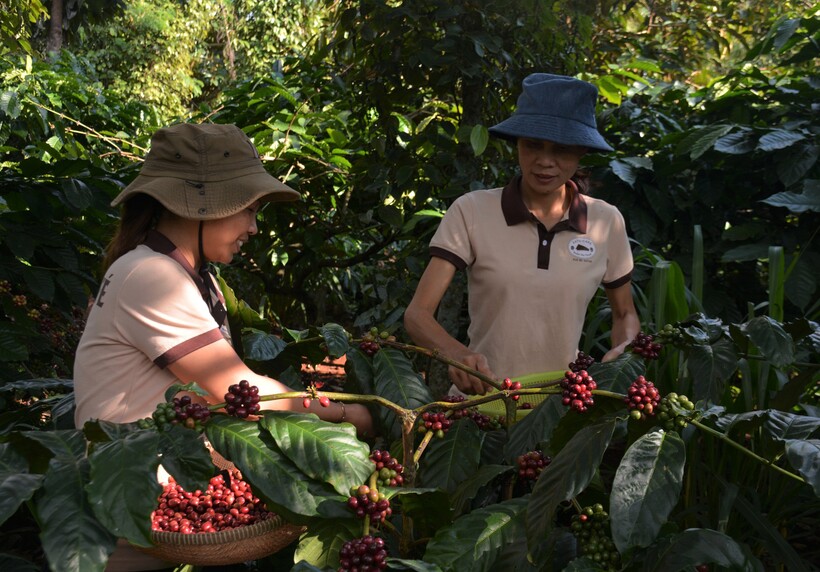
Simexco’s coffee products gain higher value through value-chain linkages.
Simexco Dak Lak currently purchases products as committed, regardless of market fluctuations. The company manages vast raw material areas with tens of thousands of ethnic-minority households in the Central Highlands. Mr. Nguyen Dai Duong, representative of the Sustainable Agricultural Development Division at Simexco Dak Lak, said: “When farmers see that the enterprise keeps its word, they begin to change and comply with techniques. This trust grows stronger when the enterprise shares added value, especially for high-quality or specialty products”.
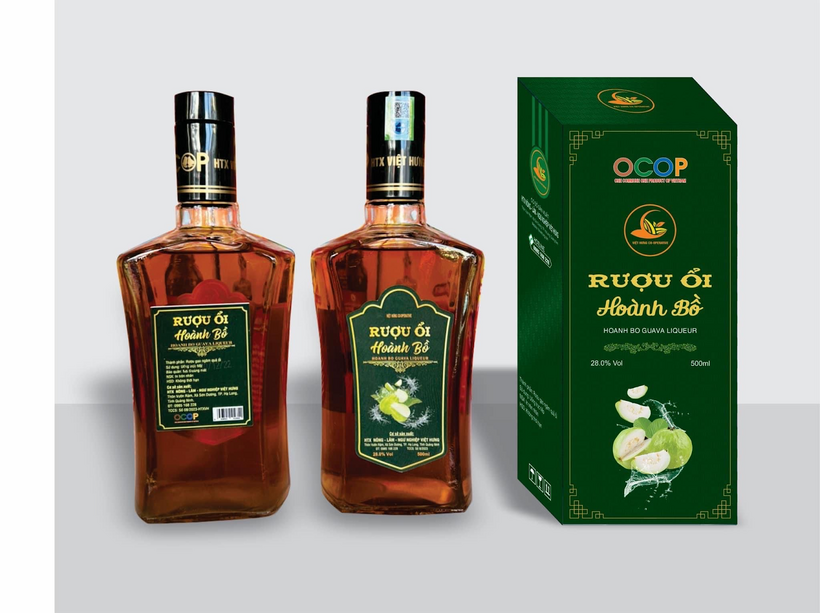
Hoanh Bo guava is favored by consumers.
Alongside enterprises, cooperatives act as intermediaries but remain a key link in ensuring the smooth operation of the chain. Ms. Nguyen Thuy Ha, Director of the Viet Hung Agro-Forestry and Fisheries Cooperative, said the cooperative not only gathers farmers but also strictly controls quality, requires compliance with VietGAP, and takes responsibility for any defective products. When cooperatives operate effectively, enterprises can confidently expand raw material areas and farmers feel secure about market outlets. However, a cooperative is strong only if it has capable staff, clear mechanisms, and transparent operations. This is why many localities need to train cooperative staff, support infrastructure, and provide access to preferential capital.
Technical assistance - the decisive factor for consistent quality
A particularly important aspect of linkages is technical assistance. Simexco sends engineers directly to the fields to guide farmers in changing practices down to the smallest detail. This model can be applied to products such as tea, cinnamon, star anise, guava, and highland medicinal herbs. When farmers understand the “why” instead of just “following instructions”, their commitment increases. Such assistance requires time, especially for ethnic-minority communities accustomed to traditional cultivation. But once techniques improve and quality becomes more consistent, enterprises have a stronger basis to negotiate prices and expand markets.
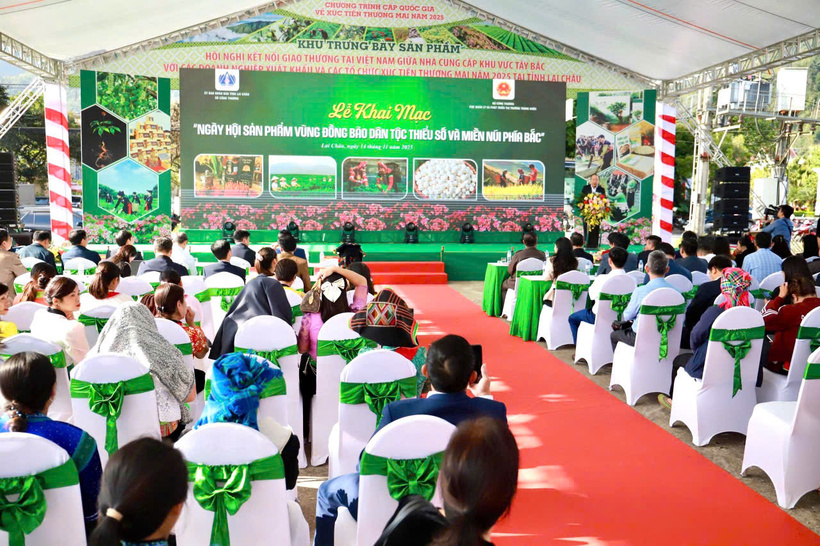
The Ministry of Industry and Trade supports the consumption of ethnic-minority produce.
Not every model can be replicated entirely. Each agricultural product has specific ecological, soil, climate, and market characteristics. However, the core principles of value-chain linkages, standards, trust, benefit sharing, and organized production can be fully applied. For ethnic-minority products such as tea, cinnamon, and star anise, building effective value chains requires strong cooperatives, enterprises with processing capacity and market access, farmer compliance, and supportive government policies.
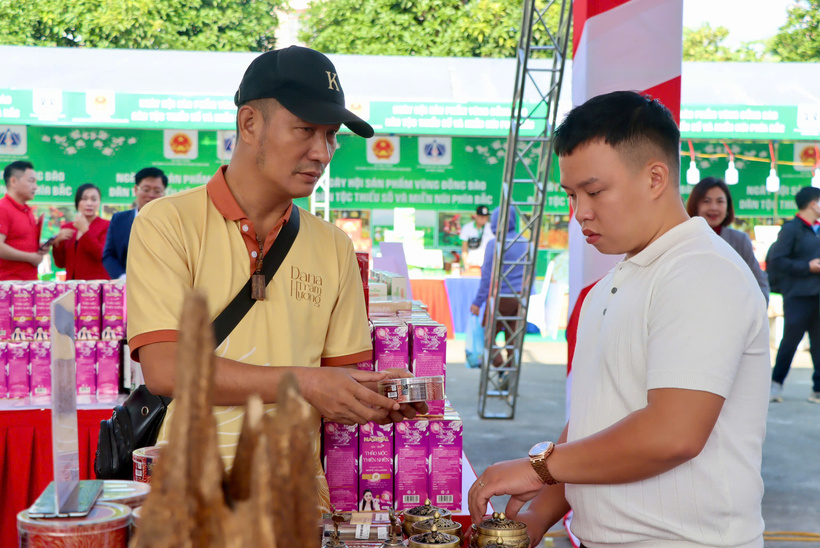
Ethnic-minority produce is increasingly favored by consumers.
Another key factor is that enterprises must be capable of leading the market, applying processing technologies, and maintaining credibility with farmers.
Government support for farmers
To support value-chain linkages for agricultural products in mountainous and ethnic-minority areas, the Ministry of Industry and Trade (MoIT) is enhancing market information dissemination through enterprises and cooperatives. This helps farmers understand demand, adjust production accordingly, and improve quality.
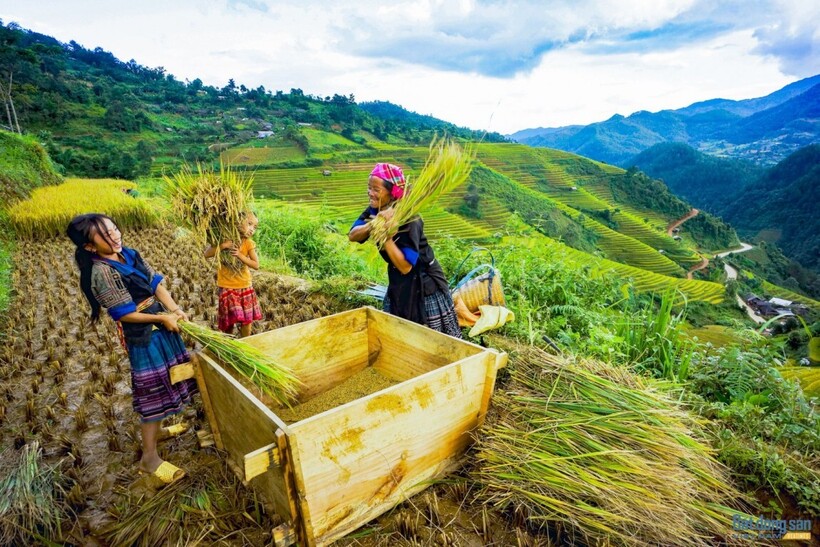
Value-chain linkage is a mandatory requirement.
Amid the rise of e-commerce, the MoIT has also organized training programs on digital business skills for enterprises and key stakeholders.
In April, the Vietnam Trade Promotion Agency, together with the Department of Industry and Trade of Dak Lak Province and TikTok, held a training course on basic digital trade promotion and online brand-building skills, attracting 100 participants from Central Highlands provinces.
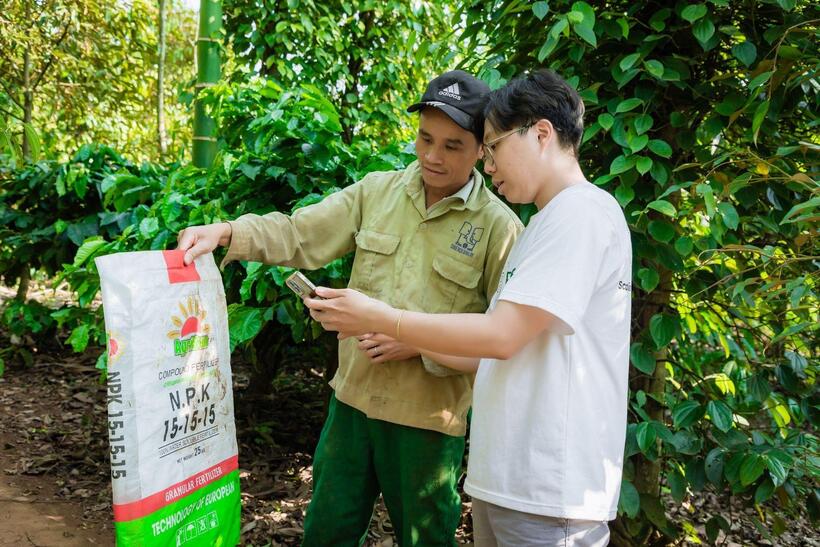
Value-chain linkage models need to be scaled up.
In May, the Vietnam E-Commerce and Digital Economy Agency under the MoIT coordinated with the Lai Chau Provincial People’s Committee to organize events under the theme “Promoting regional linkages in e-commerce development: Upgrading products from the Northern midland and mountainous areas”, with participation from more than 100 cooperatives, household businesses, and exemplary production units.
In November, the MoIT’s Agency for Domestic Market Surveillance and Development and the Department of Industry and Trade of Lai Chau Province jointly organized the 2025 Festival of Products from Ethnic-Minority and Mountainous Areas in Northern Vietnam. Director Tran Huu Linh stressed that domestic market development has received special attention from the Party, the State, and the Government. The MoIT has implemented important programs to raise awareness and promote the consumption of ethnic-minority products. These activities not only increase incomes but also introduce regional cultural values to the wider public.
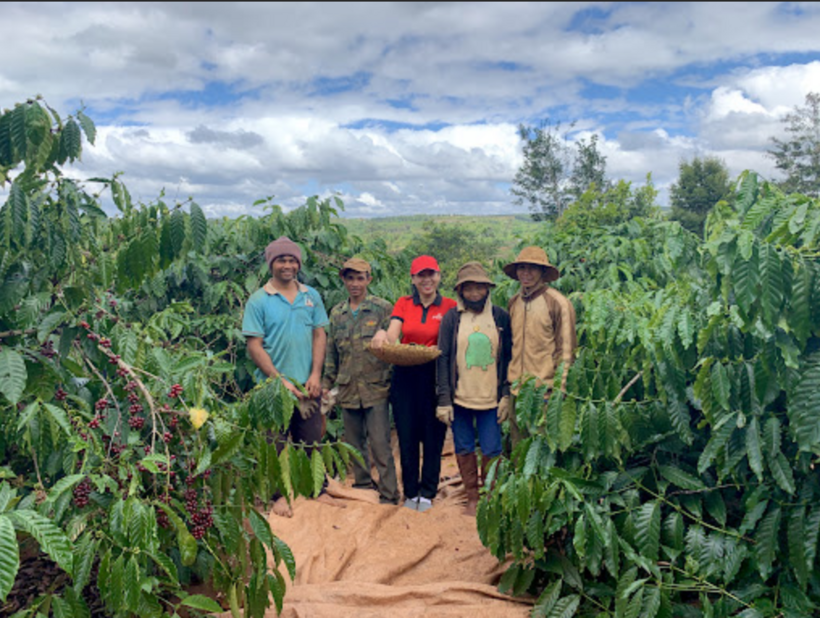
Farmers from ethnic-minority communities celebrate a fruitful harvest.
Mr. Tran Huu Linh affirmed, “The Agency for Domestic Market Surveillance and Development will continue to accompany stakeholders, provide market information and advisory services, connect distribution systems, and help highland products gradually establish their position, not only in the domestic market but also globally”.
Linkages not only create market access but also open opportunities for ethnic-minority produce to enter major markets with new positioning. When standardization is applied, responsibilities are shared, benefits are distributed fairly, and trust is built among stakeholders, highland products are no longer confined to small-scale, unorganized production. Enterprises and cooperatives, together with farmers’ determination and government support, form the driving force that takes ethnic-minority produce from upland fields to the market, increases incomes, and enables sustainable breakthroughs.

19:05 | 23/03/2025 08:30 | 15/02/2026News and Events

19:05 | 23/03/2025 08:25 | 15/02/2026News and Events
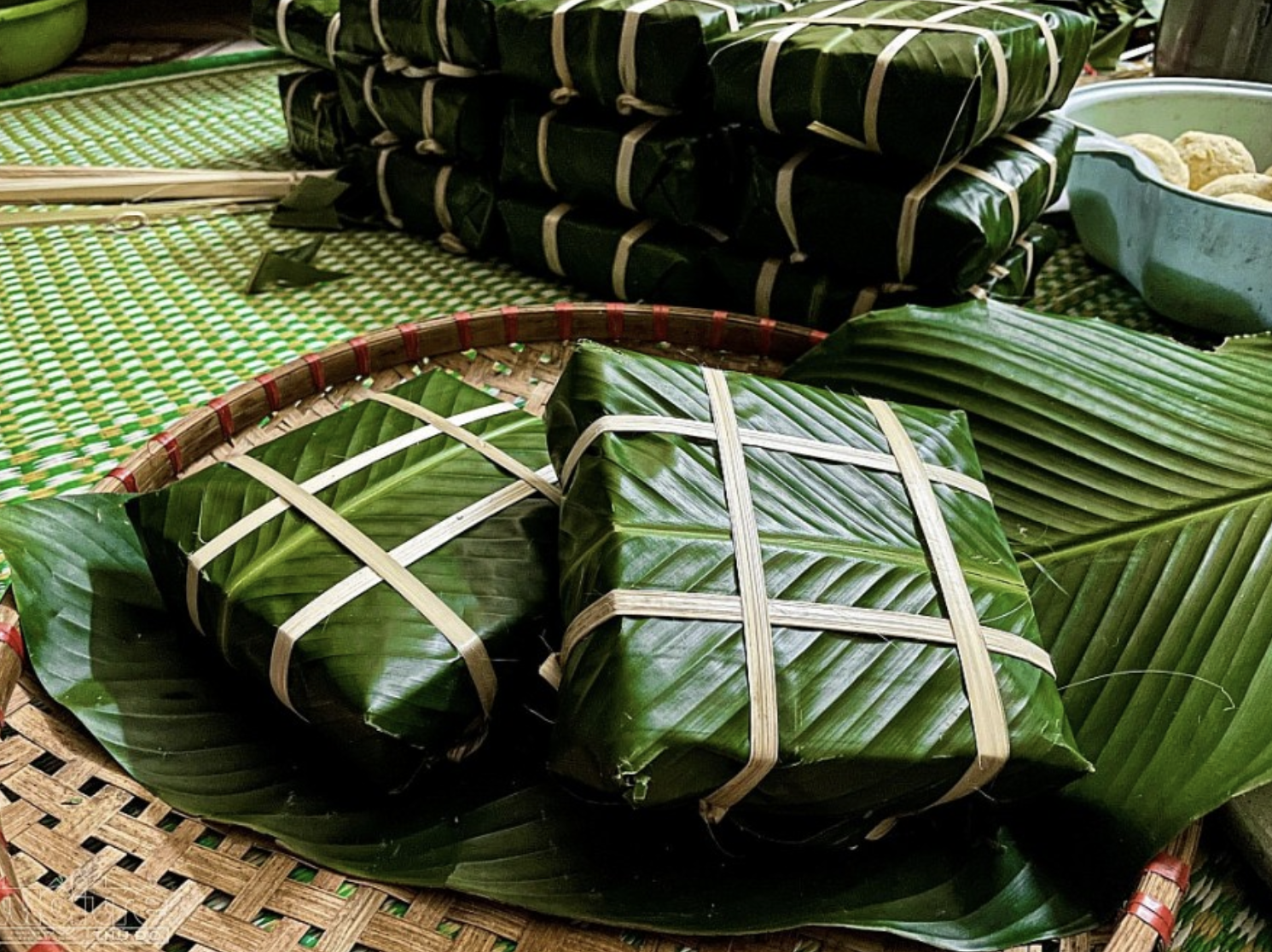
19:05 | 23/03/2025 16:44 | 14/02/2026Tourism

19:05 | 23/03/2025 16:33 | 14/02/2026Home Page

19:05 | 23/03/2025 16:32 | 14/02/2026Trade